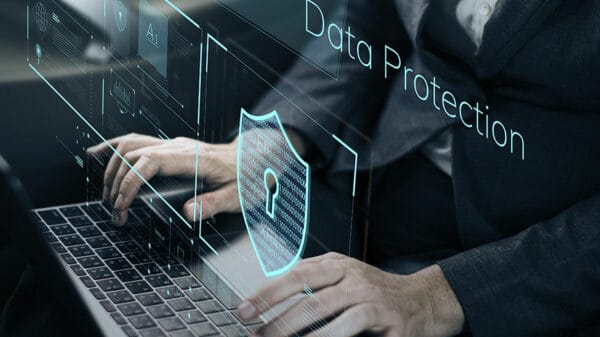Since the beginning of mankind, people have been constantly inventing new ways to purchase. While some innovations served true and valuable purposes, others were judged pointless and were quickly phased out. One of the most ancient methods, cash, has survived for an entire millennium. Will it be eliminated by virtual payments, which continue to rise throughout the world and which promise superior freedom of use?
The rise in the share of virtual payments is nowhere near its end. The factors behind this global economic trend are many and come from different sectors. Both the developing world and the developed world are massively increasing their use of electronic payments. Some institutional entities favor the disappearance of cash, which they consider risky, expensive and inefficient. Economist Ken Rogoff champions this side of the war on cash and says, according to Feliz Solomon, a Fortune reporter, “that if implemented slowly and with the appropriate infrastructure in place, going cashless could even help to remedy exploitation of migrant laborers working in more developed countries, who often receive under-the-table payments that leave employers unaccountable.”
Several central banks see in cash a needless expense, as currency must be designed, produced, distributed and managed. Digital currency specialists, like Coinidol, keep a close eye on central bank policies to root out cash, such as Norway’s : “European banks are keen to minimize the rotation of cash and more often propose to shift to digital banking use. The paper states a similar idea as well. Norges Bank will continue to issue cash as long as there is demand for it. But when cash usage declines, a CBDC can be an alternative to depositing money. The primary purpose of a CBDC is to ensure confidence in money and monetary system. E-money and crypto-assets are hardly viable alternatives in the near and medium term”.
However, are electronic payments the gateway to freedom?
Not so, claim the proponents of cash. While electronic payments do enable to make payments at anytime, anywhere, they have inherent limits to the liberty they offer. Cash is simply owned, regardless of any external factor. Power shortages, be they on the power grid or simply a dead phone battery, will have no effect whatsoever on a person’s capacity to conduct financial operations in cash.
This argument is even more valid in rural areas where internet access can be haphazard, or in the poorer segments of the population. Toby Meyjes warns that: “there are people on the fringes of society who are so reliant on it, that a life without it almost seems like an impossibility. Yet, there is a growing awareness amongst the homeless and those that support them that action needs to be taken now so they are ready when the time comes. For those with no fixed abode there are a huge array of different hurdles that need to be jumped in order for them to live a life not wholly reliant on cash.” A societal move towards a cashless economy would therefore further reduce the little economic freedom they have.
Outside these destitute categories of populations, the promise of freedom is still a mermaid call, according to civil rights whistleblowers. Cash is the only payment, outside bartering, which requires no third-party validation. Unbeknownst to many, the number of businesses and government agencies which have access to every detail of our financial transactions is quite large, and ranges from payment solution companies to fiscal administration, through the banks. With the rise in awareness over privacy threats from businesses and governments, fundamental liberties activists point out that using electronic payments also amounts to placing ourselves under the prying eye of many organizations, both public and private.
Sydney Morning Herald Matthew Lesh warns readers about the risk inherent to Australia’s push against cash, for example: “The ban will, however, prevent the many genuine uses of cash, including keeping transactions private from prying eyes, avoiding credit card transaction fees, and the preference for physical cash over non-material digital currency. In 1984, George Orwell explored how Big Brother uses surveillance to control citizens. “Always the eyes watching you and the voice enveloping you. Asleep or awake, working or eating, indoors or out of doors, in the bath or in bed – no escape,” Orwell wrote”.
The debate hinges on the dual nature of liberty and freedom which implies a multiplicity of choices. Cashless-society promoters claim, for instance, that a Paypal account can be used to make a payment to the person in the next room or on the other side of the planet, a flexibility which cash does not provide. Electronic payments were also initially advertised as a way to finally break free of theft, though a massive increase in online fraud has destroyed the argument. In 2017, the Guardian reported that “The value of fraud committed in the UK last year topped £1bn for the first time since 2011, prompting a warning about increasing cybercrime and the risk of more large-scale scams as the economy comes under pressure. The 55% year-on-year rise in the value of fraud to £1.1bn reported in the court system was recorded by accountants”.
But freedom can also be defined as the honest citizen’s ability to conduct his or her business without being scrutinized discreetly by hundreds of prying eyes and tracked by businesses and governments. Recent online privacy scandals have indeed shown how the public safety, and namely individual identities, were at risk of being compromised by the rising amount of data which is collected by Web companies and by governments. Finally, the defenders of cash do not demand the banning of electronic payments, but only that physical currency be maintained – whereas the supporters of cashless societies request that cash be suppressed. Why reduce the available options to make purchases, ask civil rights activists?
The advance of the digital age has paradoxically enhanced the role of cash as an instrument of freedom. Not only is e-money just as vulnerable to theft as cash, it can be stolen in greater amounts. But, most of all, virtual cash demands, in exchange for convenience, the identity of the holder, unlike cash. This exposes the identity of the citizen in addition to his or her holdings and makes them vulnerable to state or business surveillance.
























































































































































































